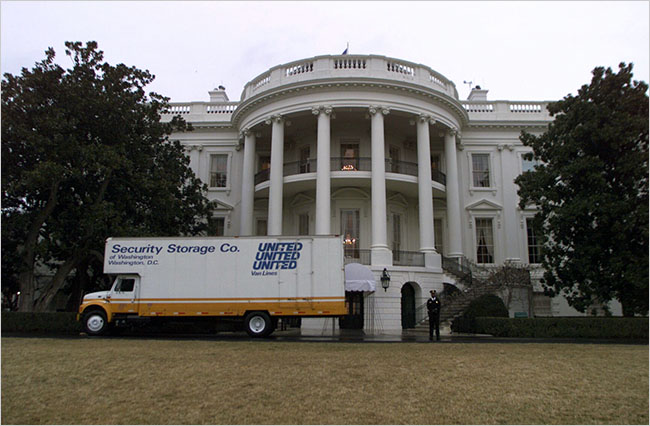January 20th is a monumental day in the history of the United States. President-Elect Donald Trump will take the oath of office and assume the presidency from President Obama. Following the oath and inaugural address, Trump will have lunch in the Capital before the start of the Inaugural Parade. In various forms, the parade has occurred since George Washington’s inauguration. Representatives of the armed forces, community groups, and marching bands typically participate in the parade. With the unusual and acerbic nature of Trump’s campaign, colleges and universities that have agreed to participate in this year’s parade have faced controversy and backlash from campus constituencies. In today’s post, I want to share my thoughts on the controversy and why I believe the bands should participate in the parade.

I approach this issue from a different perspective than many. I have actually marched in a presidential inaugural parade.
Following the controversial 2000 election of George W. Bush, I was a member of the UNC marching band that participated in the parade.
When I think back to my college years, participating in the parade is one of the most memorable things that I did.
I will never forget the sight of moving trucks in front of the White House the day before the inauguration and what a powerful sight it was to see.
I did not vote for President Bush. I disagreed with many of his policies. I can’t imagine not participating in the parade because of my objections to his policies and priorities.
The parade was about honoring the nation more than honoring the man to me and many others I suspect. It felt like an American act to participate in the parade for someone that I didn’t support. Indeed, working with those who disagree with him is surely lesson that the President-Elect could benefit from learning.
It is important to understand how this is the foundation for my thoughts on joining this year’s parade.
Colleges and universities joining the parade this year face far different circumstances than previous inaugurations.
Normally, regardless of party, a college or university loves the honor and exposure of joining the parade.
Marist College, the University of Tennessee, Olivet Nazarene University, and Talladega College are facing a barrage of criticism for the decision to march this year.
You have to feel bad for poor Marist College who has applied to participate in the past and not been selected. Now that they finally get the chance, they face backlash.
Talladega College is also a really interesting case.
The historically black college in Alabama faced tremendous controversy regarding their participation including dueling petitions from current students and alumni.
Talladega President Billy Hawkins deserves tremendous credit for how he handled the issue. He met with stakeholders across campus before affirming the band’s decision to go to Washington.
In a statement announcing the band will march, he said, “We respect and appreciate how our students and alumni feel about our participation in this parade. As many of those who chose to participate in the parade have said, we feel the inauguration of a new president is not a political event but a civil ceremony celebrating the transfer of power.”
Olivet Nazarene President John Bowling struck a similar tone in his statement: “We do not view this as a political event, but a civic ceremony, that provides the students with the opportunity to visit Washington and observe the process of transition firsthand. The band would have been pleased to participate in the parade if Hillary Clinton had been elected or for President Obama, but we were not invited. The university does not support any candidate or party—we are not monolithic or of one mind. Such is the nature of a university.”
It is easy to understand why many are concerned about any appearance of supporting President-Elect Trump. As I have said, he is dangerous and I did not support his candidacy.
While the parade certainly to a degree honors him as well as Vice President-Elect Pence, I believe the parade is more about honoring the peaceful transition of power.
In the end, colleges and universities are probably in a no-win situation on this issue. Criticism will likely occur no matter the decision made.
I certainly wouldn’t want to be on the public relations staffs of these institutions right now.
Ultimately, I agree with Talladega student Dollan Young who wrote in his petition, “We believe that this parade is not about politics it’s about seeing first hand the process of a transition . . . [It is] about the experience that the students will obtain.”
Higher education, like many other aspects of our society, is going to face pressure in how to respond to President Trump. There will be times when we need to engage and there will be times we need to protest.
Yet, this has always been the case. Whether with President Obama’s misguided accountability ratings or President Bush’s policies impacting international students, higher education has to stand up for our values. These values aren’t partisan or at least they shouldn’t be.
This is why I support the colleges and universities that decide to participate in the 58th Presidential Inaugural Parade. It is okay to honor the nation and the Constitution while disagreeing with the occupant of the presidency.
In fact, I would argue this is one of the foremost purposes of higher education. Disseminating knowledge freely, regardless of the views of the president or other political leaders.
How do I know this? I learned it participating in the parade.
Marching in the parade honors the best ideals of our country without sacrificing the ability to stand in opposition to those ideas that will hurt the country.
After all, this is what the peaceful transition of power looks like. Along with the powerful image of a moving truck outside the White House.

